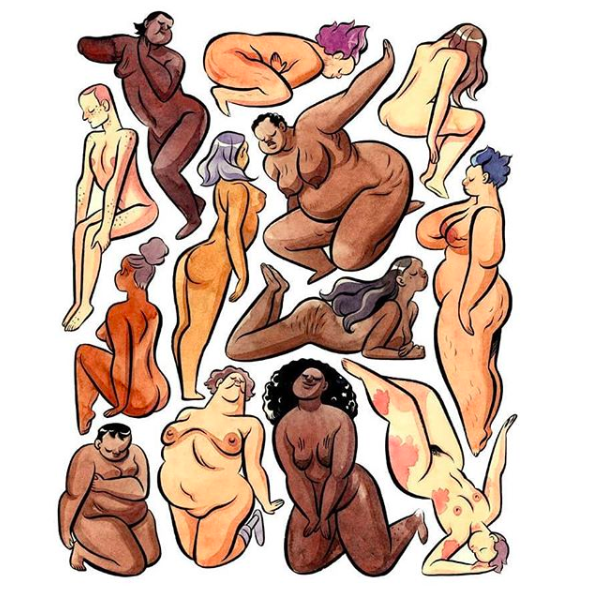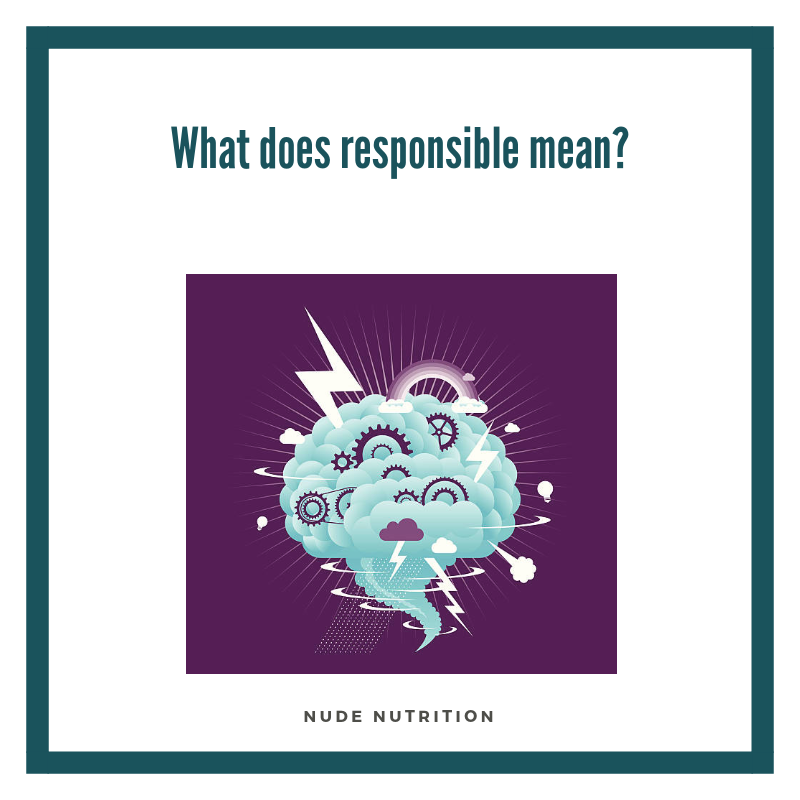
10 Body Positive Instagram Accounts to Follow
10 Body-Positive Instagram Accounts to Follow
Following more diverse bodies helps us all unlearn the falsehoods diet culture teaches us. Diet culture tries to tell us what it means to be fat in our society, but learning directly from the voices of those who live in a large body is far more important. Representation matters.
So if you need more body positive accounts that brighten your feed, make you feel good, or make you think, here are 10 accounts to follow.
- Megan Jayne Crabbe @bodyposipanda
Megan is the bestselling author of Body Positive Power. Her account is a vibrant portrayal of her adventures in life and wonderful body positive messaging. Her outfits are stylish and her rainbow hair is symbolic of her bold feed. Megan is a survivor of an eating disorder and is sharing her light with the world through this account.
- Ragen Chastain @ragenchastain
If you haven’t heard of Ragen Chastain, follow her right now. She is an accomplished dancer and athlete on top of being a speaker, writer, and activist. I’ve heard her speak in real life, and let me tell you, she is the real deal. Follow her for everything fat activism; you will not regret it. Some fun additional information on Ragen: she is currently training for her first ironman and holds the Guinness World Record for being the heaviest woman to complete a marathon.
- Kimmie Singh, MS, RD @bodypositive_dietitian
Kimmie Singh is a relatively new RD and a knowledge bomb when it comes to Health at Every Size®. I had the amazing opportunity to hear this wonderful human speak at the Weight Inclusive Nutrition and Dietetics Symposium in Washington D.C. this past September. Kimmie really knows her stuff. Her Instagram messaging is both educational and warm. Follow for content relating to eating disorders, intuitive eating, and PCOS.
- Brianna M Campos, LPC @bodyimagewithbri
Bri Campos is another wonderful human who I had the privilege of hearing speak at the Weight Inclusive Nutrition and Dietetics Symposium. If you are someone who appreciates an Instagram influencer who is active in posting to their story, Bri is your girl. Not only are her posts helpful, but her stories are real and raw as she shares her life as a body image coach and therapist. She adds some humanity to a space where lives are typically portrayed as being perfect, through the sharing of her own lived experiences.
- Dr. Joshua Wolrich, MBBS, MRCS @drjoshuawolrich
This person is cool, he is a weight-inclusive surgical doctor for the NHS. His account is full of mythbusters as he addresses fatphobic messaging within the medical community. I have a lot of respect for this guy, as it’s typically more difficult to find medical doctors so with-it. If you like scientific details and Q&A’,s Dr. Joshua Wolrich is your next account to follow.
- Virgie Tovar, MS @virgietovar
Virgie’s stylish feed packs a serious punch. Follow Virgie for empowering messaging that is also informative. Virgie is an expert in issues relating to weight-based discrimination and body image and is an awesome role model to have on anyone’s insta feed. As a personal recommendation, I LOVED reading You Have the Right to Remain Fat with my book club and 10/10 recommend any and all publications of hers’.
- Corissa Enneking @fatgirlflow
We. Need. To. Follow. More. Diverse. Bodies. It is one of the ways we can unlearn and challenge the weight-biased ideas society has taught us about being in a large body. Corissa Enneking is a blogger into #plussizefashion. She has produced amazing content for some major media outlets designed to end the shame and stigma associated with living in a fat body. As an added bonus, her website has some seriously cool merchandise.
- Your Fat Friend (anonymous essayist) @yrfatfriend
I don’t know anything about the individual who is the face behind Your Fat Friend, but whoever they are, is awesome. This is an account you can go to for instructive ideas around topics relating to weight bias. As a person in a thin body, I highly recommend this account to my thin bodied peers who want to be a better ally to someone who lives in a larger body.
- Meg Boggs @meg.boggs
Are you a new mom? Do you like to work out? Do you appreciate talented writers? If you said yes to any of those questions this is the account for you. Meg kills it in the weight room and in motherhood. She is honest, she is brave, and she is strong. Meg is busting stereotypes, making moves, and taking names along the way.
- I Weigh @i_weigh
As described in the bio of this account, “I Weight is about radical inclusivity, so that no one feels alone.” If you are a fan of Jameela Jamil, follow this account. If you’ve never heard of Jameela Jamil, follow this account. This is a place designed to get a person thinking about their own lived experiences and privileges while challenging cultural norms. It is an account that reminds us that we all have room for growth.
Happy following!










